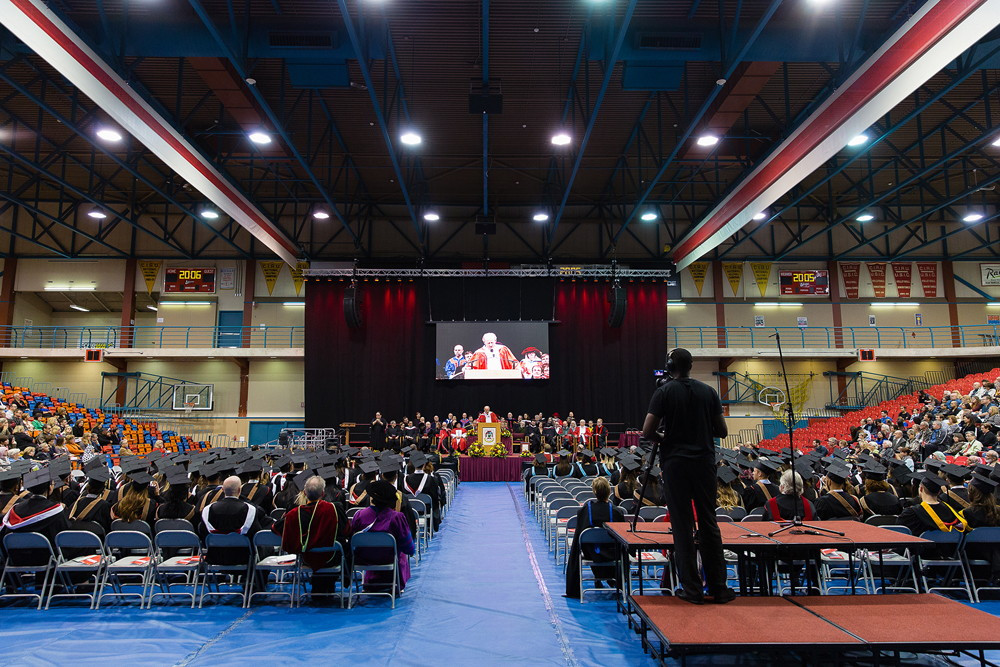Caps, gowns and a call to action
U of W’s autumn convocation honours grads, alumni with timely address
What is the most important issue facing the 317 graduates of the University of Winnipeg’s autumn convocation? Finding a job and paying the rent are good answers, but according to John Ralston Saul the answer is aboriginal relations in Winnipeg.
At the U of W’s autumn convocation on Oct. 17 at the Duckworth Centre, a ceremony in which over 300 students received degrees in graduate programs and 27 joint University of Manitoba-
U of W Master’s degrees were handed out, author and essayist John Ralston Saul spoke passionately about the economic and social disadvantages Aboriginal Peoples face in Canada.
He addressed the crowd of approximately 500 after accepting an honorary doctorate of laws, saying it is up to this generation of grads to right the injustices against Aboriginal Peoples.
“His speech just captivated the whole audience,” Manitoba treaty commissioner James Wilson says. Wilson, a U of W graduate from 1990, received the Distinguished Alumni Award at the convocation.
“It galvanized our thinking about how we’re a city with an identity crisis,” he says. “The mayoral race really highlighted that. It’s caused us some great discomfort. But Ralston Saul showed us that we have an opportunity to lead the way. I think [the U of W] can be a key part of that discussion.”
Wilson, an educator with over 13 years of teaching experience, feels his long-term professional goals overlap with the themes of Saul’s speech.
“My goal is to get treaty education in Manitoba from kindergarten to Grade 12,” Wilson says, “which I think is achievable in the next few years. It’s important because that will have an impact on not only aboriginal graduation rates, but on the understanding of issues from all parts of society.”
As a member of the Opaskwayak Cree Nation and U of W’s Indigenous Advisory Circle, Wilson understands the root problems underlined in Ralston Saul’s address.
“There’s a lack of awareness of what gets us to where we are today,” Wilson says. “We see it in the older generation. They’ve never seen a positive example of an urban reserve. If you understand the context, it helps you see the solutions and opportunities. We have issues of education, poverty, addiction.
“If we understand things like urban reserves and treaty land entitlement, it can benefit the city and the reserves and could help create employment.”
Sydney Earpwiebe, valedictorian of the autumn convocation and a mathematics graduate, was also deeply moved by the speech.
“Ralston Saul is such a powerful speaker,” Earpwiebe says. “It was fantastic to hear his insights on the emphasis that we really are a community. We all have a responsibility to look after each other and make sure we’re helping one another reach our full potential, whatever our background. Emphasizing that collective sense of community is so important at the University.”
Earpwiebe initially felt overwhelmed by the prospect of delivering her own address to the graduates.
“My concern was that I wouldn’t know a majority of the people crossing the stage with me,” she says. “It’s not like high school, where you’re at least reasonably acquainted with everybody.
“It was important for me to use the opportunity and honour to do something for my classmates and to share something that would hopefully resonate and reinforce that what we’ve accomplished is really special.”
Published in Volume 69, Number 9 of The Uniter (October 29, 2014)







